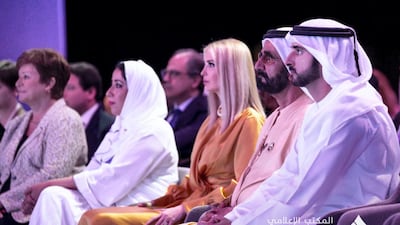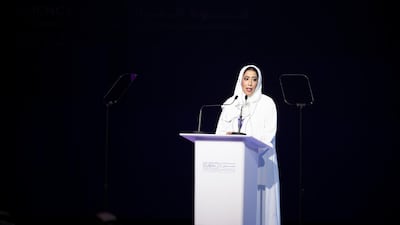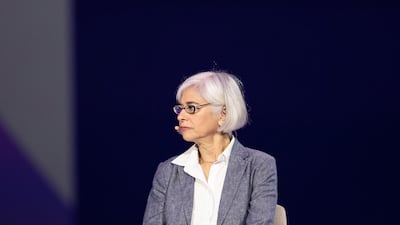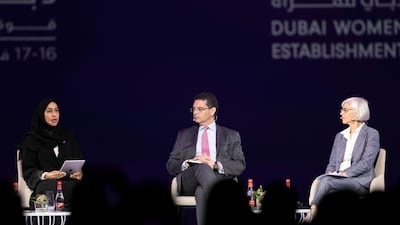Women in freelance roles charge up to 45 per cent less than their male counterparts, insight from a new report has found.
The Middle East Women at Work report looked at factors contributing to labour force participation in the Middle East and North Africa.
It showed that gender-based wage discrimination was just as rampant in the freelance sector as in the traditional business setting.
Collating data from Upwork, an online platform that connects businesses to freelancers, the statistics showed a clear disparity in rates offered by men and women for the same roles.
"A remuneration for work of equal value revealed that women charge 20 to 45 per cent less per hour than men in freelance jobs," Chiara Marcati, partner at McKinsey & Company, the consultancy firm behind the Middle East Women at Work report, said.
“The reality is, women in freelance roles set their own rates but this suggests men value themselves more.”
She said women feel the need to charge less than men because of “learnt stereotypes”. Often, they feel they are treated as less capable than men in the same industry.
The complete results of the report will be published next month.
To create a more conducive work environment in the Middle East, Ms Marcati said a change in legal framework is one of the most important drivers to fix gender inequality in the workplace.
“New legislation would have a double effect. It will ensure companies do not take advantage of women and it will stop women from putting themselves at a disadvantage [when it comes to setting pay rates].”
Such laws will afford women with more “bargaining power” too, she said.
Looking at the advancement of women in the workplace, the report found that those in senior level positions have their judgment questioned “five times more than men” in the same positions, from 64 per to only 14 per cent, respectively.
“Additionally, seven out of 10 women in these roles report they are the only senior females in their workplace,” she said.
“Going back to that feeling of self-worth, unconscious bias has led to only two out of 10 women in senior positions feeling fully included at work.”
To fix the “leaking pipeline” and keep more women in work, Ms Marcati said four key issues need to be addressed.
“Cultural and social pressures, better support at work, a change in thinking and access to better roles models,” she said.
“Women in entry-level jobs interact less with senior leaders than men. Eighty-three per cent of men have access to leaders compared to just 75 per cent of women.”
Additionally, she said women in the Mena need to embrace digitisation more.
In this region, the penetration figures of women on professional online platforms is low. Globally, 44 per cent are on LinkedIn, but in the Middle East fewer than 28 per cent have an account on the popular employment platform.
“Figures also show that less women, 20 per cent, apply for jobs online compared to men.”
To conclude, Ms Marcati said that from a government perspective they are seeing a lot of progress and important steps are being taken to advance gender parity, however, some regulations still need to be adjusted and some laws reformed.
















